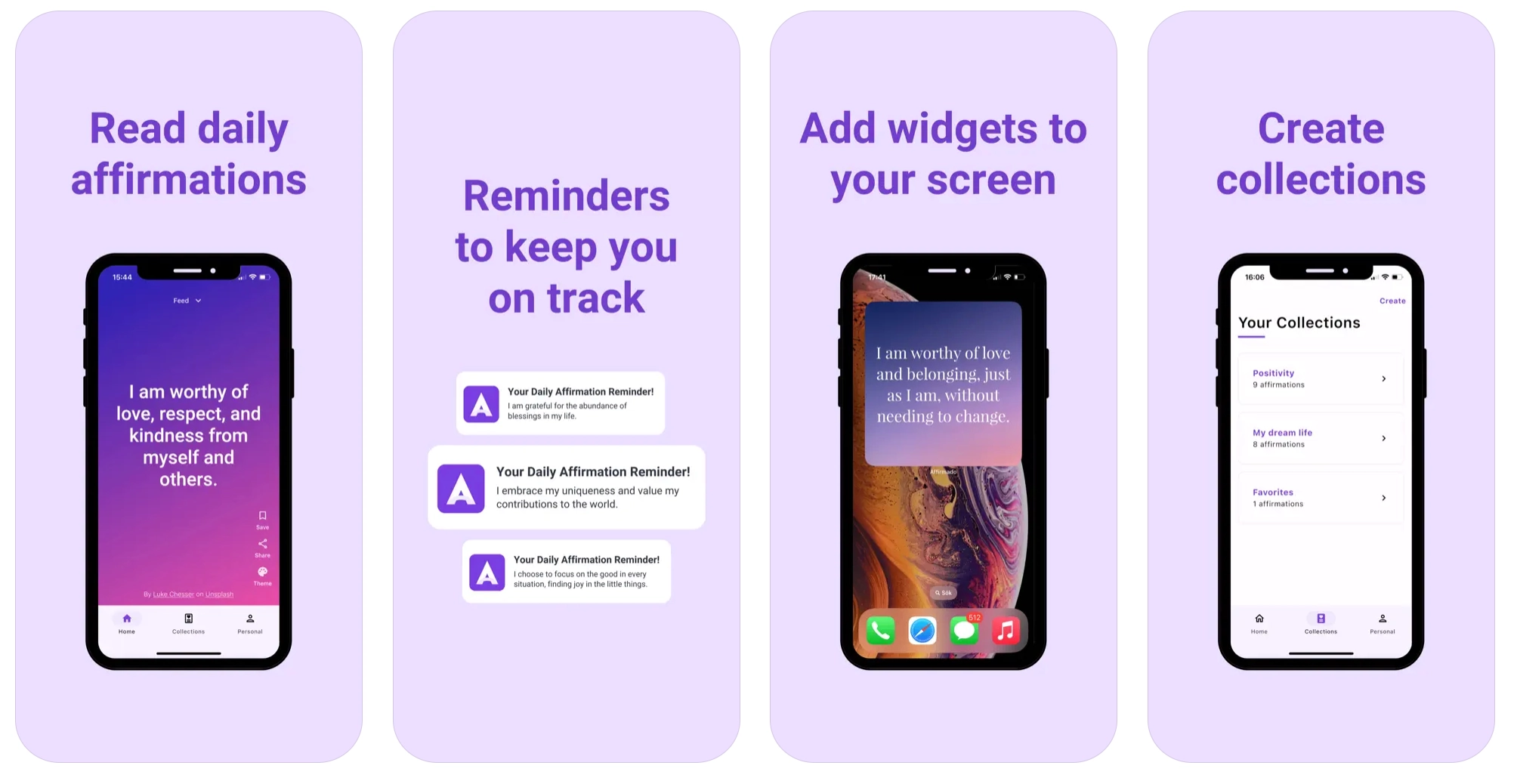Welcome to Affirmado, your daily companion for cultivating a positive mindset, gratitude and manifestation. Elevate your daily routine with empowering affirmations tailored to uplift and inspire you every step of the way.
Customize Your Experience:
Choose from a variety of stunning wallpapers to create a serene atmosphere that resonates with your personal style. With Affirmado, your journey towards positivity begins with aesthetics that speak to your soul.
Personalized Notifications:
Never miss a moment of motivation with personalized notifications that remind you to embrace the power of positive thinking throughout your day. Let Affirmado be your gentle nudge towards getting rid of your negative thoughts and a more fulfilling life.
Journaling with Daily Prompts:
Deepen your self-reflection with Affirmado's new journaling feature. Receive daily prompts designed to inspire introspection and growth. Premium users enjoy the added flexibility of changing prompts as often as they like, ensuring their journaling practice remains fresh and engaging. Capture your thoughts, track your progress, and witness your personal evolution unfold on the pages of your journal.
Manifest Your Dreams:
Unlock the potential within you as you harness the transformative power of manifestation. Affirmado provides you with the tools to articulate your aspirations and believe in your ability to turn dreams into reality. With each affirmation, feel yourself drawing closer to the life you envision.
I Am, Therefore I Can:
Affirmado reinforces the belief that self-affirmation is the cornerstone of self-realization. With our carefully curated collection of "I am" statements and other affirmations, empower yourself to embrace your strengths, acknowledge your worth, and cultivate unwavering confidence in your abilities.
Find Your Motivation:
Discover a treasure trove of motivational quotes and affirmations that ignite your inner fire and propel you towards your goals. Let Affirmado be your daily source of encouragement as you navigate life's journey with renewed vigor and determination.
Practice Self Love:
How can you truly love others if you don't already love yourself? Practice your self-love with daily affirmations tailored to your goals. Let us help you find gratitude for all the beautiful things in your life.
Increase Your Self Esteem:
Affirmado contains both affirmations for men and affirmations for women to help elevate self esteem. Schedule daily reminders for your personal goals and start the day with a smile on your face.


